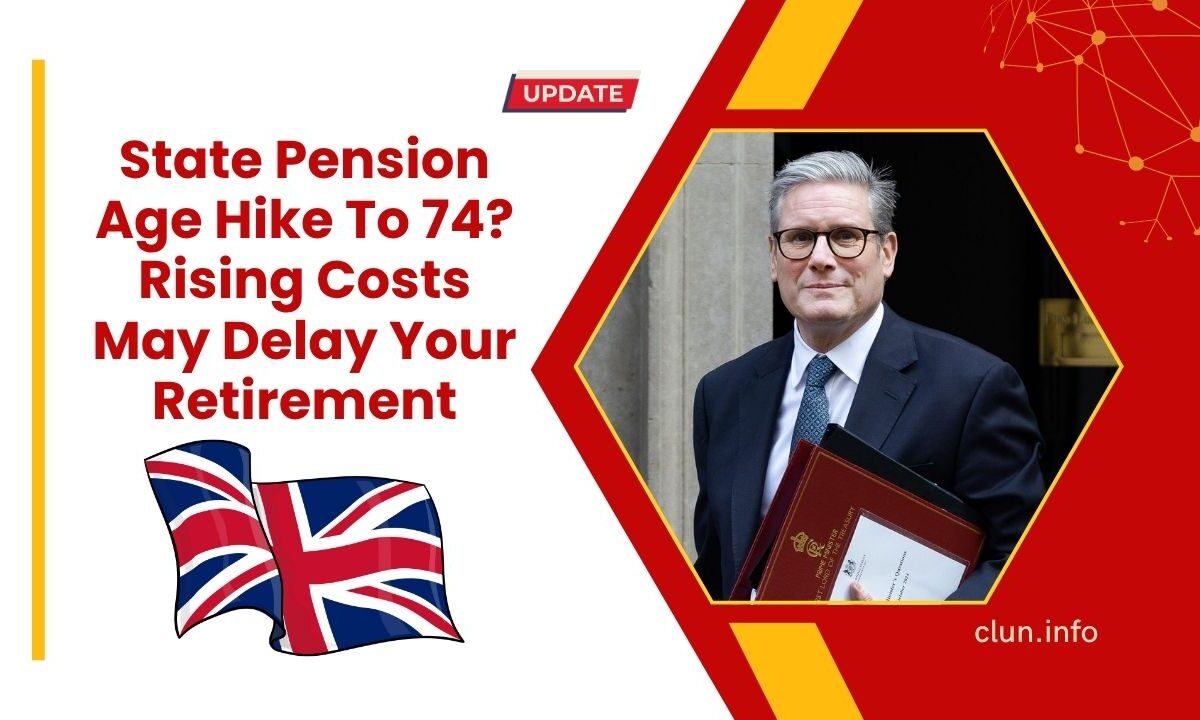In a move that could reshape retirement planning for millions across the UK, the state pension age may rise to 74 in the coming decades, according to a new report from the Institute for Fiscal Studies (IFS).
As public finances face mounting strain, experts warn that maintaining the triple lock – which ensures annual pension increases – may require delaying retirement by nearly a decade for younger generations.
Why the State Pension Age Might Rise
The triple lock guarantees that state pensions rise annually by the highest of inflation, average earnings growth, or 2.5%.
While this has protected retirees from the rising cost of living, it’s also costing the government an estimated £11 billion more each year compared to traditional indexation.
According to the IFS, keeping public spending on state pensions below 6% of national income would require pushing the state pension age to 69 by 2049 and 74 by 2069. Without such drastic changes, the sustainability of the UK’s retirement system may be at risk.
Triple Lock Impact on State Pension
The triple lock policy has had a substantial impact on pension incomes, particularly benefiting those already retired. However, this financial security comes with long-term implications for the working population, who may have to work longer to support future benefit levels.
Currently:
- The full new state pension is worth £230.25 per week.
- This represents about 25% of mean full-time earnings.
By 2050, the state pension is projected to rise to 26%–32% of full-time average earnings, equating to £10,900–£13,400 annually in today’s money. This means an increase of up to £2,500 per year, but it comes at the cost of extended working years.
The Cost of Sustaining the Triple Lock
The IFS estimates that by 2050, the additional spending caused by the triple lock could be between £5 billion and £45 billion annually. This wide range reflects uncertainty about:
- Population aging
- Wage growth trends
- Economic performance
Such volatility makes budget planning difficult for future governments, and places increased pressure on the working-age population.
Who Would Be Affected Most by a Pension Age Hike?
If the state pension age increases to 74, it will disproportionately affect:
- People in poor health or physically demanding jobs
- Those with limited private pensions or savings
- Individuals unable to remain employed into their late 60s and early 70s
- Lower-income groups more likely to die earlier, thus enjoying fewer retirement years
Analysts warn that without matching employment support or early-access options for those with medical needs, such a policy could increase poverty levels among older workers, particularly those in their early 60s.
Key Figures and Projections
| Metric | Details |
|---|---|
| Current Full State Pension (per week) | £230.25 |
| State Pension Age (Current) | 66 |
| Proposed State Pension Age (by 2049) | 69 |
| Proposed State Pension Age (by 2069) | 74 |
| Annual State Pension (2050 Projection) | £10,900 – £13,400 |
| Extra Cost from Triple Lock (by 2050) | £5 billion – £45 billion per year |
| Savings Needed for Extra £2,500/Year | £50,000 – £60,000 in personal savings |
Retirement Planning in a Changing System
With pension age increases now on the table, individuals need to plan further ahead. Retirement experts suggest:
- Maximising private pension contributions
- Reviewing investment strategies
- Exploring health-based early retirement options
- Considering part-time or flexible work past traditional retirement age
The government may also face pressure to introduce transitional schemes to help those unable to work longer due to health or career limitations.
While no final decision has been made, the potential rise of the state pension age to 74 is a stark warning about the cost of securing retirement income under the triple lock system.
For younger workers, this could mean not only a longer working life but the need for more robust personal financial planning.
As discussions around pension reform continue, it’s vital for all working-age individuals to stay informed and prepared for a changing retirement landscape.
FAQs
Will the state pension age definitely rise to 74?
No, it’s not confirmed yet. This is a projection by the IFS showing what may be necessary to sustain the triple lock.
What is the triple lock?
It ensures state pensions rise by the highest of inflation, wage growth, or 2.5% each year, helping retirees keep up with living costs.
How can I prepare for a later retirement?
Start by increasing private savings, reviewing your pension strategy, and planning for possible longer working years.




